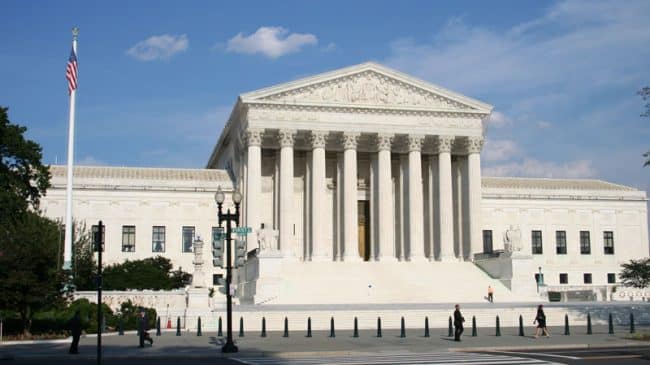This amicus brief was filed filed on behalf of Reason Foundation, the Center for Constitutional Jurisprudence, the Judicial Education Project, The Individual Rights Foundation, The Heritage Foundation, Ending Spending, and Former Senator George LeMieux.
The Patient Protection and Affordable Care Act, Pub. L. No. 111-148, 124 Stat. 119 (the “ACA” or “the Act”), as amended by the Health Care and Education Reconciliation Act of 2010, Pub. L. No. 111-152, 124 Stat. 1029, is a nearly 2,500-page bill that set in motion a sweeping and comprehensive overhaul of the heretofore State-based health insurance industry.
Although a sharply divided Congress passed the ACA by an exceedingly narrow margin, the ACA will impact virtually every man, woman, and child in the United States. With procedural irregularities and partisan maneuvering replacing compromise and circumspection, the ACA was enacted in a strikingly different manner than other major pieces of progressive social legislation in our nation’s history.
The heart of the ACA is its minimum coverage provision-an unprecedented and oppressive mandate that, with limited exceptions, compels all Americans to enter into and maintain expensive health insurance contracts throughout their lives to obtain “minimum essential coverage,” regardless of the individual’s health, desires, or economic interests. 26 U.S.C. § 5000A. This mandate is enforced through a monthly monetary penalty. See id. at § 5000A(b).
As noted by each of the courts below, the mandate “represents a wholly novel and potentially unbounded assertion of congressional authority.” Pet. App. 187a; see also United States v. Lopez, 514 U.S. 549, 583 (1995) (Kennedy, J., concurring) (“The statute now before us forecloses the States from experimenting and exercising their own judgment in an area to which States lay claim by right of history and expertise, and it does so by regulating an activity beyond the realm of commerce in the ordinary and usual sense of that term.”).
In its zeal to pass the ACA and the unprecedented mandate that lies at its core, a slim but unyielding congressional majority failed meaningfully to address the constitutional questions about the individual mandate that had been raised by the Congressional Research Service (the “CRS”) and Congressional Budget Office (“CBO”), among others, or to otherwise consider the limitations of its enumerated powers.
Congress’ failure to consider such limitations resulted in a bill that exceeds the powers granted to Congress under the Constitution and severely infringes upon the individual liberty that the Constitution was designed to protect and promote. See Bond v. United States, 131 S.Ct. 2355, 2364 (2011). In such circumstances, this Court should not accord to the individual mandate the same “presumption of constitutionality” that it typically grants to congressional enactments in the first instance.
